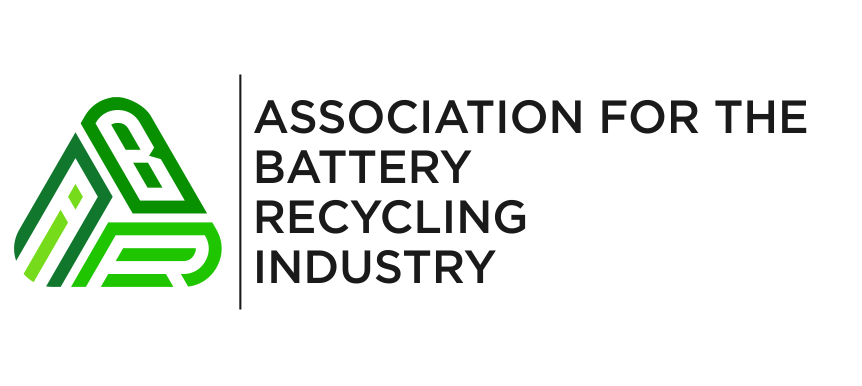1 November 2023
1. NEW NSW/QLD HAZARDOUS WASTE TRACKING SYSTEM - JOIN TRIAL OF NEW SYSTEM - RSVP BY 15 NOVEMBER
The NSW EPA is inviting interested ABRI members to trial (also called sandboxing) the new NSW/QLD hazardous waste tracking system – the Integrated Waste Tracking Solution or IWTS. The system will replace the existing Online Waste Tracking (OWT) and WasteLocate systems in NSW.
To sign up for the sandbox, please complete this form by 15 November 2023.
Lead acid battery recyclers – you will be required to transition to the IWTS as part of tracking hazardous lead waste. If you are not already on the EPA’s contact list, you can sign up here.
Lithium battery recyclers – as is the case currently, waste tracking will generally not apply to you as NSW and QLD do not require tracking of these products – see NSW waste tracking classifications and Qld waste tracking classifications. NSW EPA will provide further advice early next week on the requirements for used lithium batteries. Separately, ABRI is engaging with NSW and other jurisdictions as there is discussion around the future potential to formally list used lithium batteries as products which need to be included in waste tracking. ABRI will keep members informed of developments in this space.
What can you do in the trial?
In the trial (sandbox) environment you can create trial movement authorisations and associated movements of hazardous and regulated waste, as well as review your organisation and user details.
When do you need to start using the IWTS in NSW?
The NSW EPA is working towards a launch date of 1 December 2023. However, this date may change to incorporate the feedback they receive from participants during the trial.
Full NSW EPA correspondence on the trial
2. MEMBER EVENT - SEEKING APPROVAL FOR BATTERY TRANSFER STATIONS AND PROCESSING FACILITIES - KEY PLANNING AND REGULATORY MATTERS – 2 NOVEMBER 2-3PM ONLINE
Mark Jackson will discuss the complex development and approval process for new infrastructure for the receival, sorting and processing of household batteries through to large battery storage systems. In this presentation, a review of key planning, assessment and environmental regulatory matters will be covered to assist developers through the planning and licensing system with minimal delays. The focus will be on NSW.
Register here for this online session on 2 November (2-3pm).
Mark is a Director at Jackson Environment and Planning which he founded in 2016. He is an infrastructure specialist and has 29 years’ experience in the field. He has supported the environmental planning, approvals and licensing of some of the largest waste and recycling infrastructure projects in NSW. Previously, he worked for the NSW Environment Protection Authority, leading some of the largest recycling industry development, regulatory support and infrastructure investment programs in the country’s history.
He has led the development and delivery of major planning and regulatory approvals for a range of clients such as Sell & Parker, Bingo Industries, Mint Biomining Pty Ltd, AGL and Origin Energy Ltd.
Mark’s qualifications include a Bachelor of Science (Hons., First Class), PhD (industrial waste management), Certified Impact Assessment Specialist (IA11071) through the Environment Institute of Australia and New Zealand, and a NSW Registered Environmental Assessment Practitioner REAP (R80020).
3. LITHIUM BATTERY RECYCLING - IS IT FEASIBLE TO TRIAL MOBILE PROCESSING OF USED LITHIUM BATTERIES AS A SOLUTION TO ADDRESS REGIONAL LOGISTICS COSTS?
At Waste Expo, ABRI CEO, Katharine Hole, was asked by some stakeholders if its feasible to set up a trial to assess the viability and regulatory needs of mobile processing (crushing) of used lithium batteries so black mass can be transported to centralised facilities for minerals recovery. A core part in scoping a trial would be to understand what funding support is required to undertake the proof of concept. This approach is seen as option for addressing the significant dangerous goods transport costs of moving used lithium batteries from regional areas to recyclers.
A trial scope should set out timeframes, funding needs, type of feedstock and be of a scale to undertake a proof of concept but also minimise risks. The scope would also need to explain how safety and environmental impacts and risks would be addressed and any regulatory barriers.
Interested ABRI members should contact Katharine by email or phone to discuss whether this is a feasible proof of concept and if so, what funding would be required.
An informal submission is required to Sustainability Victoria by early December.
4. GERMANY - BATTERY RECYCLING INVESTMENT OPPORTUNITIES IN A RAPIDLY TRANSFORMING LITHIUM CELL MANUFACTURING AND RECYCLING MARKET
Germany is projected to have 30% of Europe’s lithium cell manufacturing capacity and is concurrently upscaling its battery recycling capacity. The Turning Waste Into Treasure: recovering critical raw materials from lithium-ion batteries presentation from Germany Trade & Invest sets out the current status (October 2023) of these markets in Germany – an amazing industry transformation across the automotive and battery value chains. Cell capacity is projected to grow 500GWh over the remainder of the decade and battery recycling capacity is projected at over 100,000 tonnes per annum.
The presentation also provides an overview of what’s required for companies to set up in Germany, investment incentives and contact details at Germany Trade & Invest for companies looking to find out more about German battery recycling opportunities. Recent discussions between ABRI and Germany Trade & Invest suggest there is particular interest in Australia’s metallurgical and battery recycling technologies.
5. LATEST ABRI MEDIA RELEASES
20 October – Associations call for urgent action on battery related fires
27 October – Federal Government critical minerals funding plan should include battery recycling
